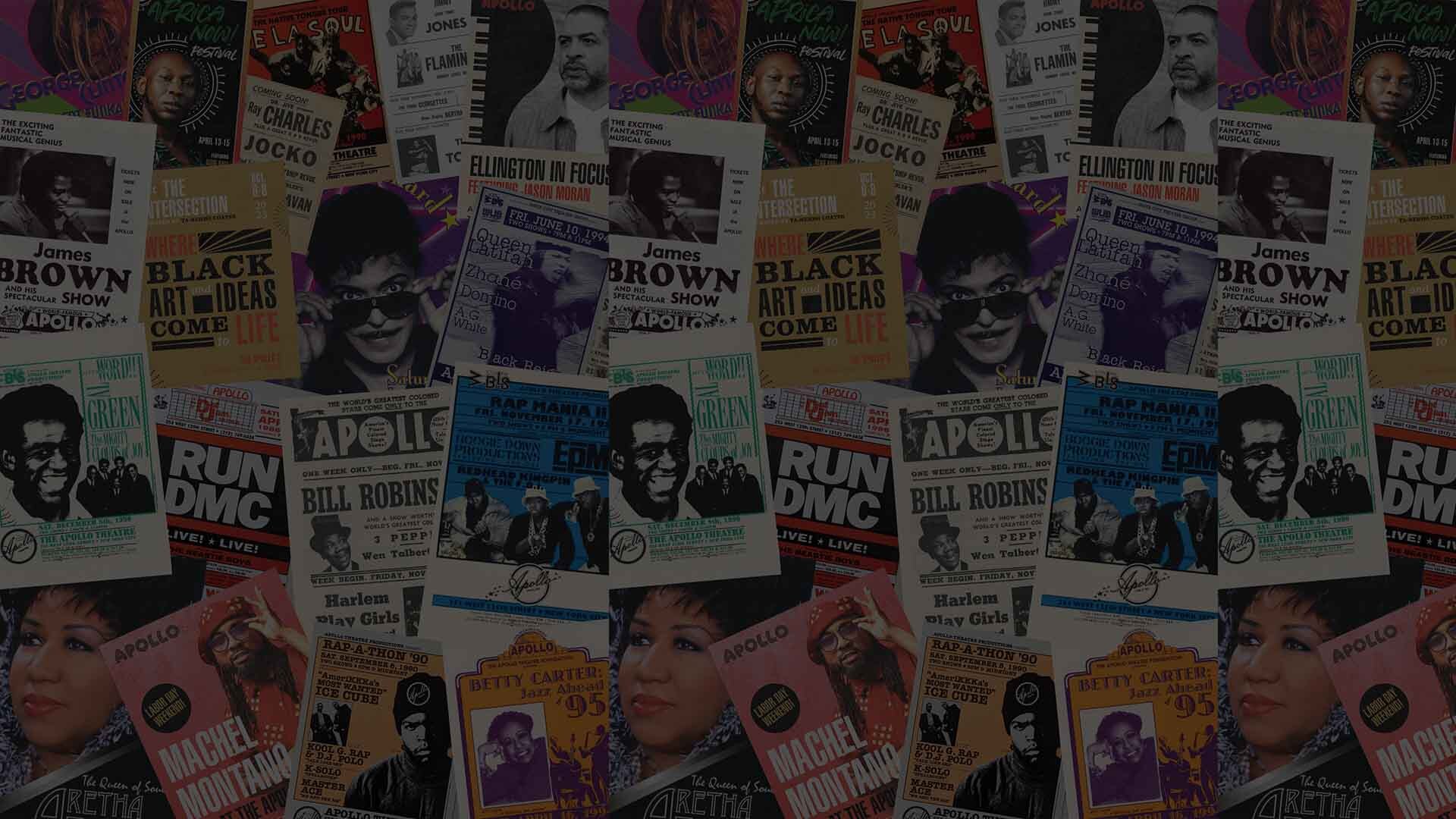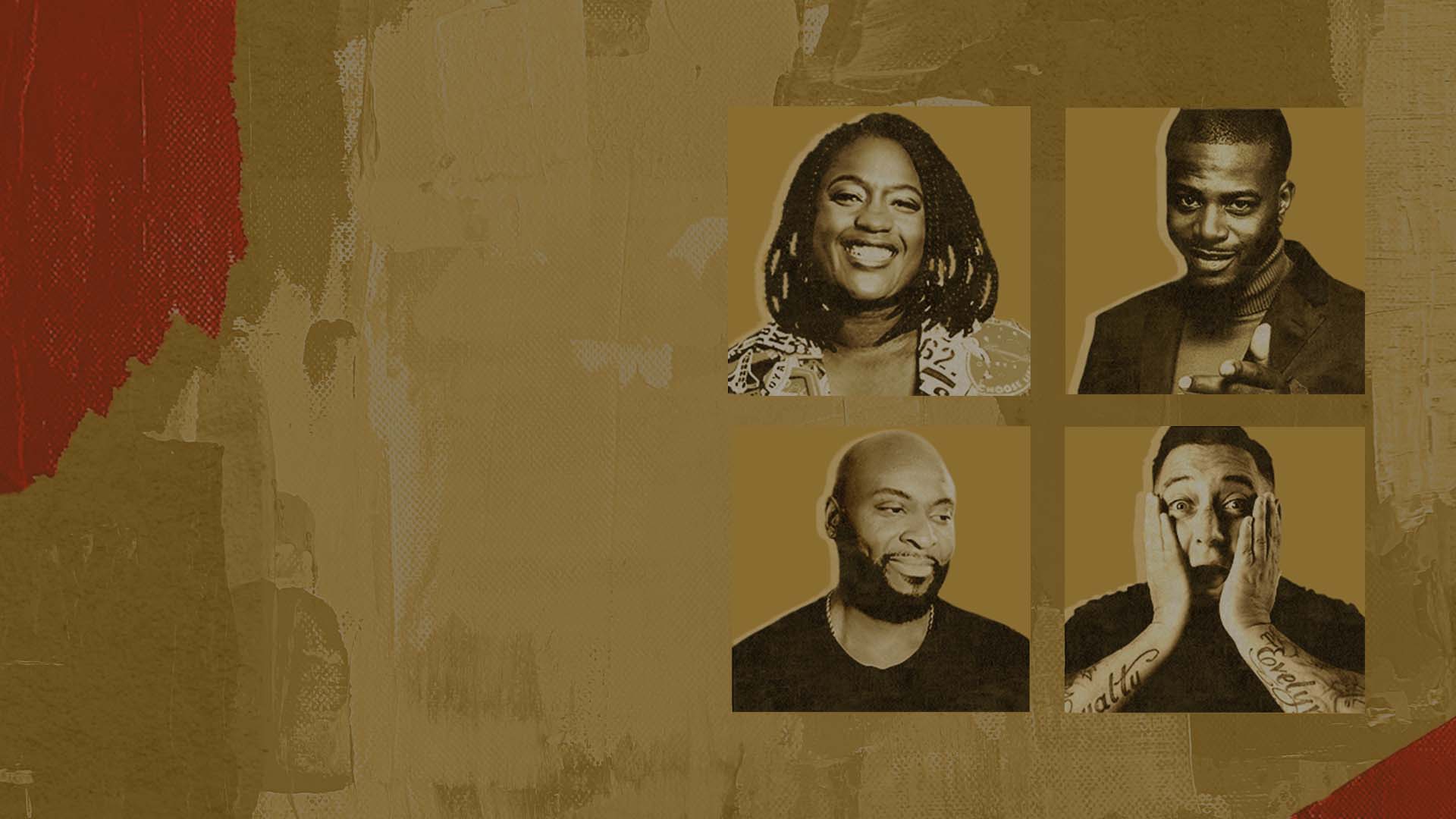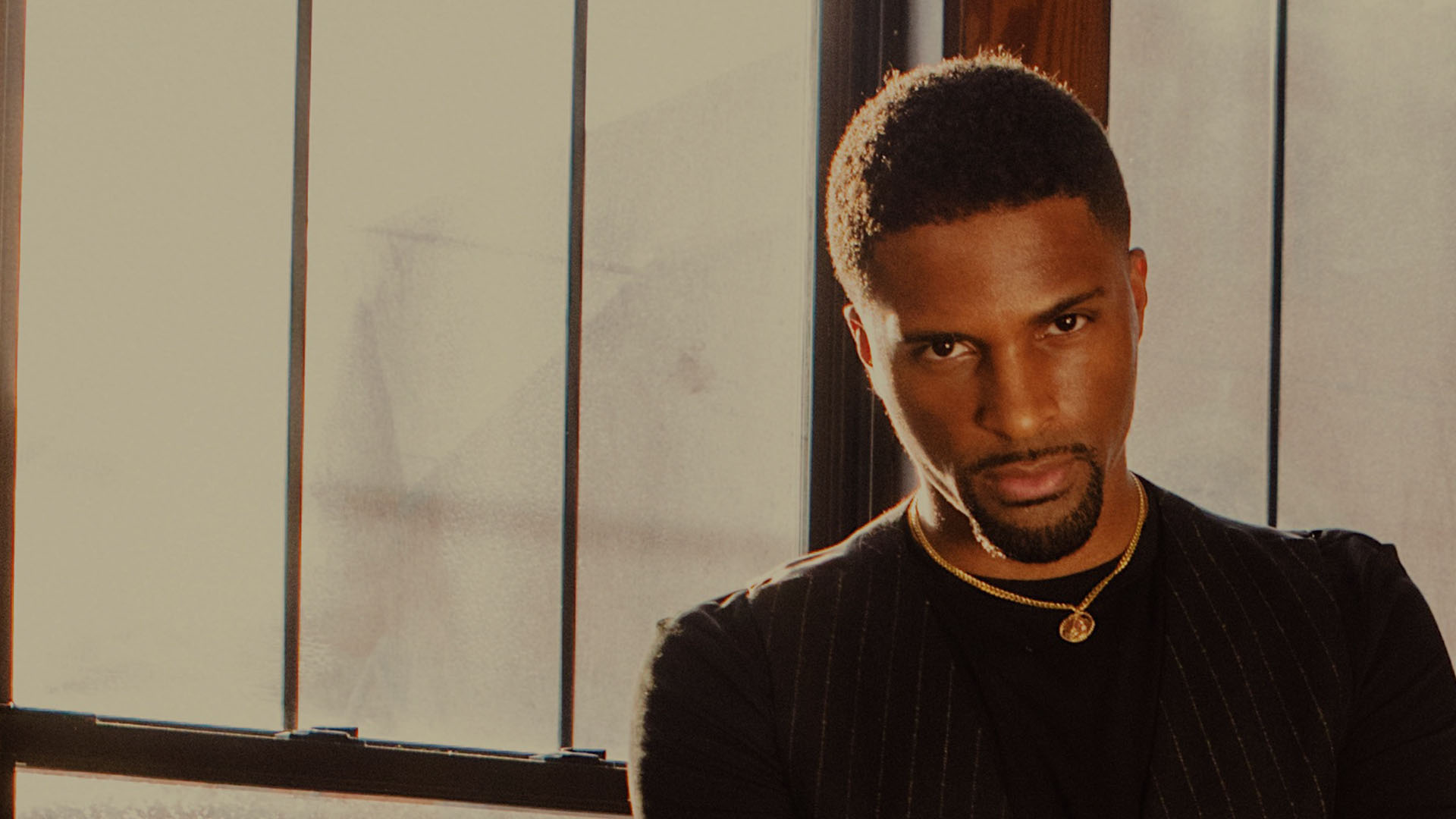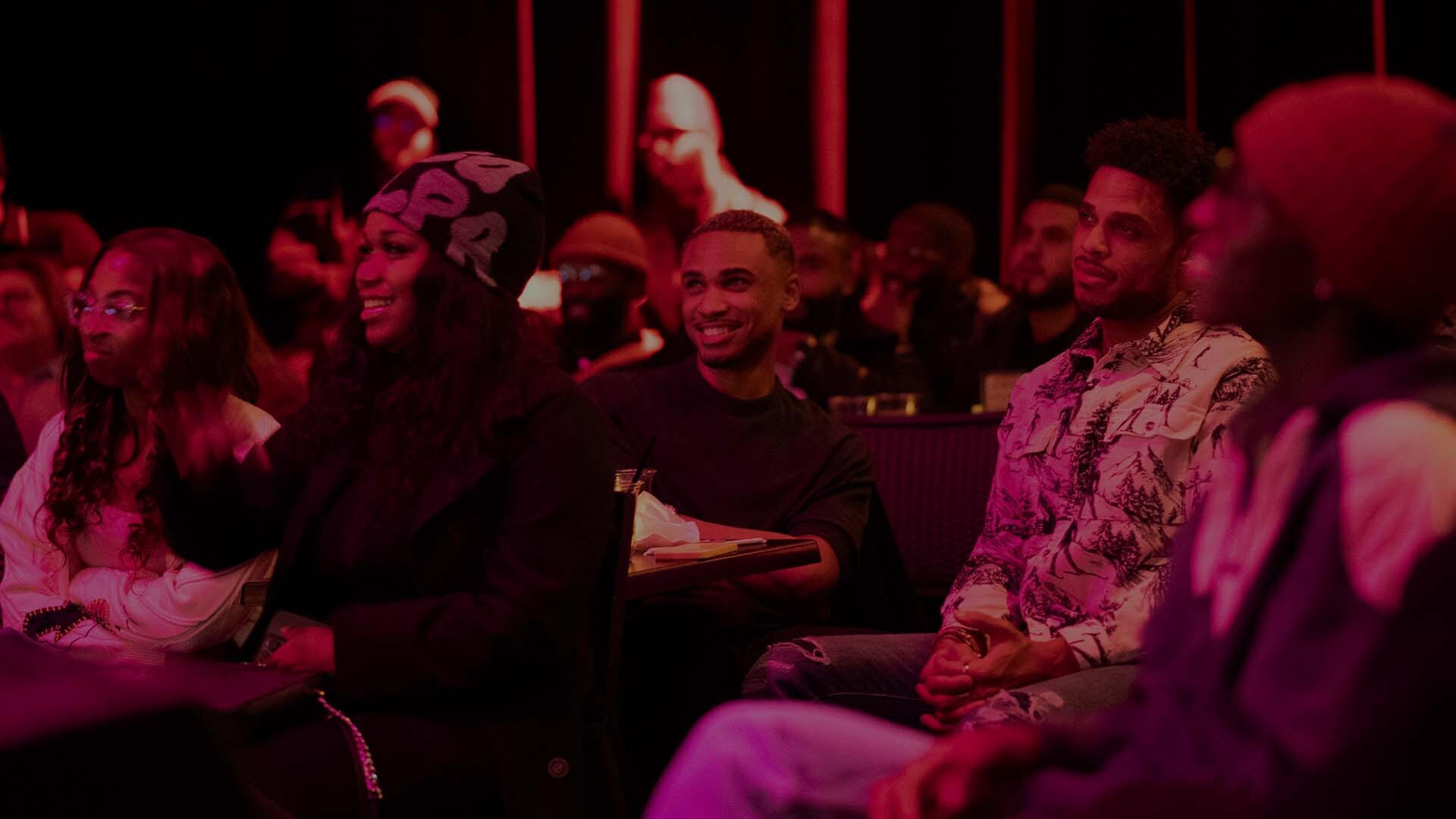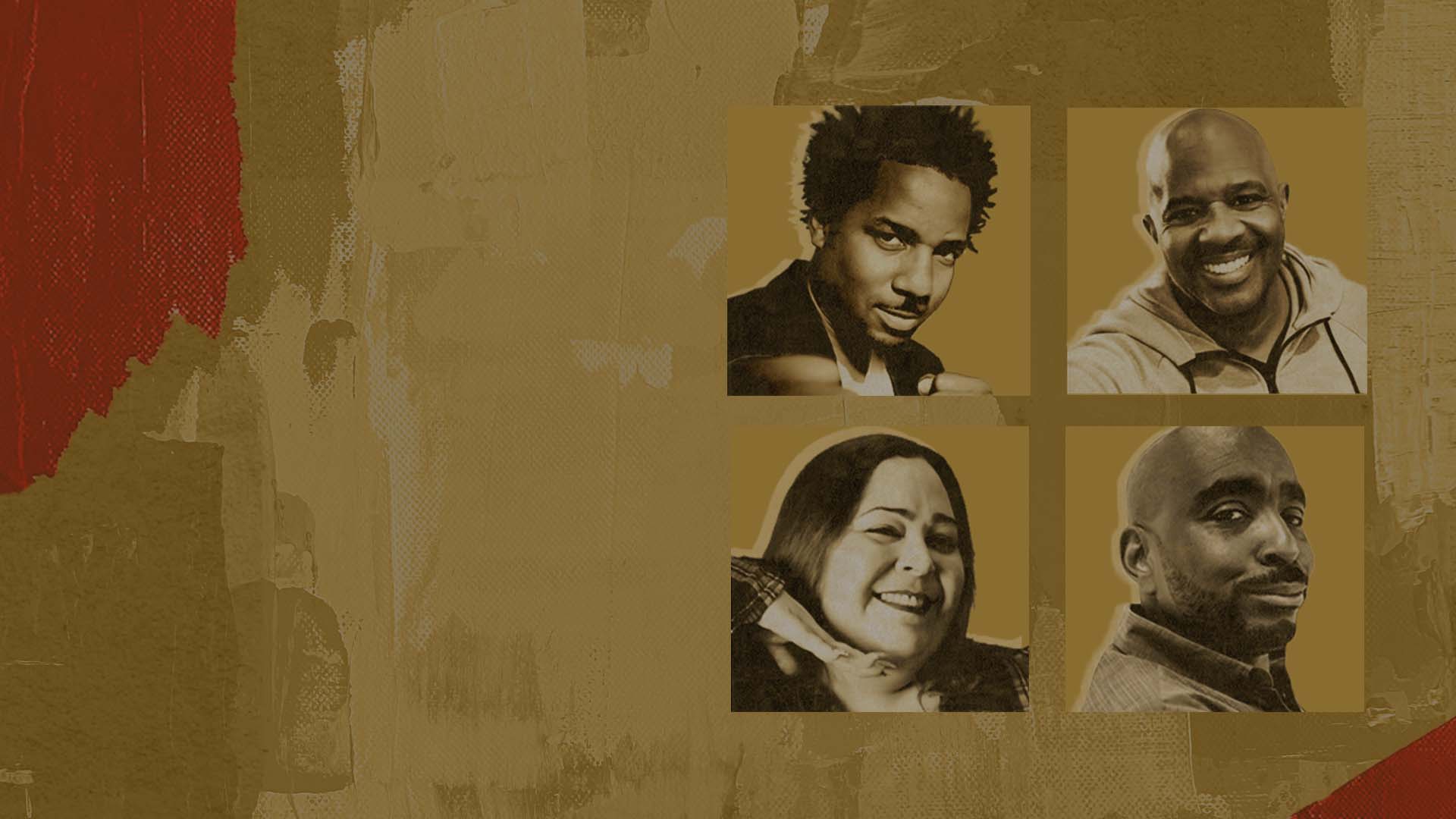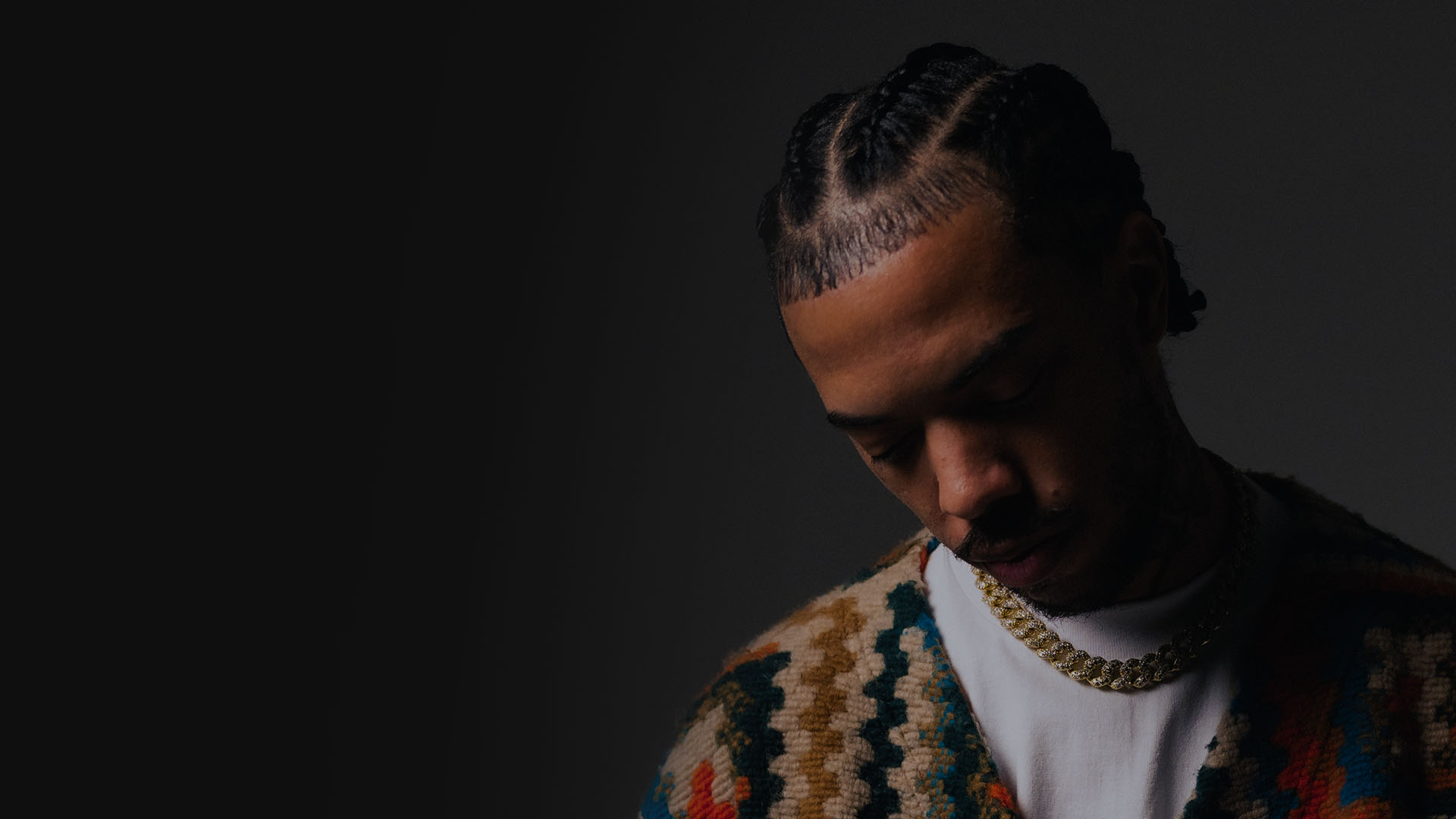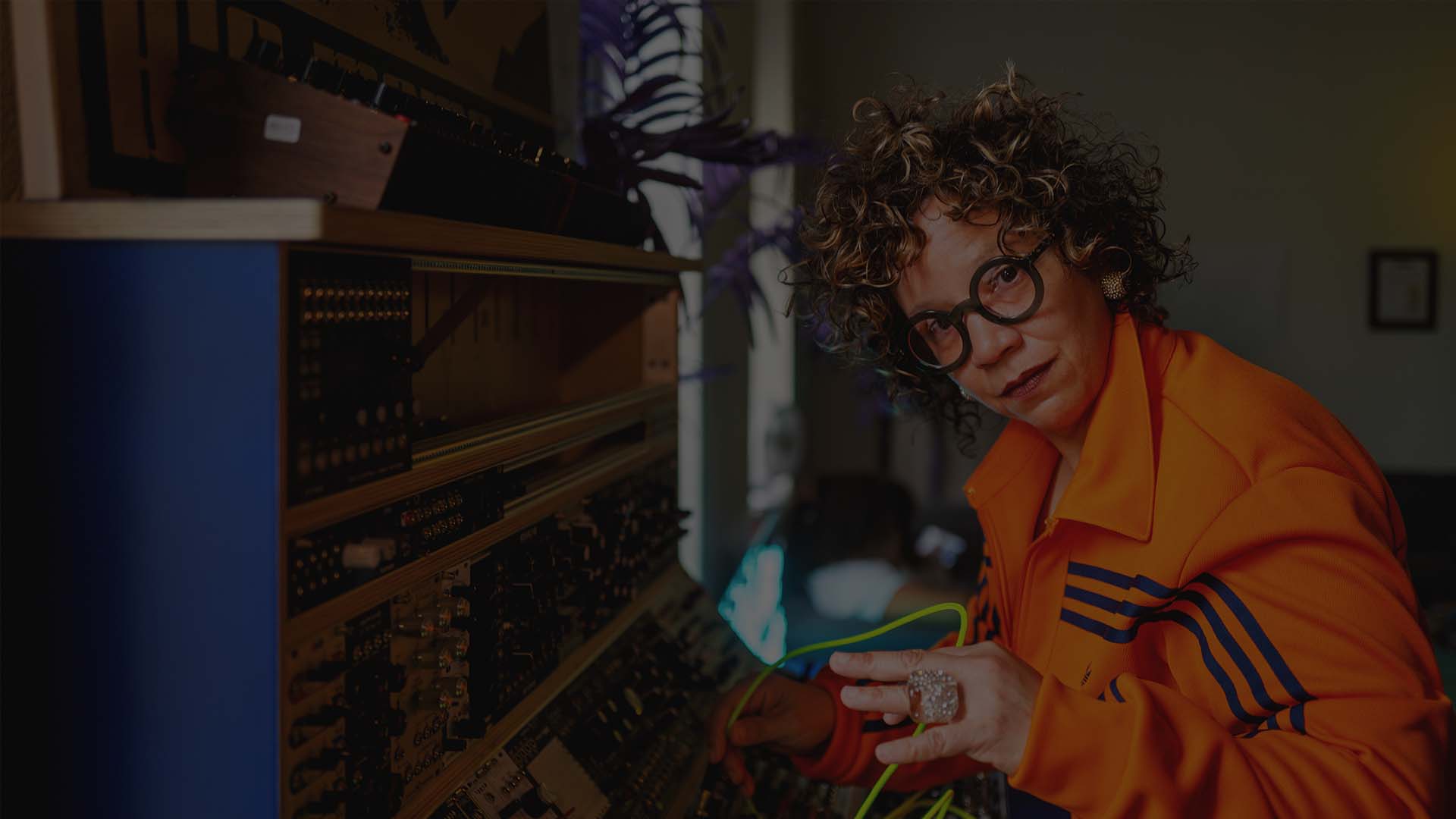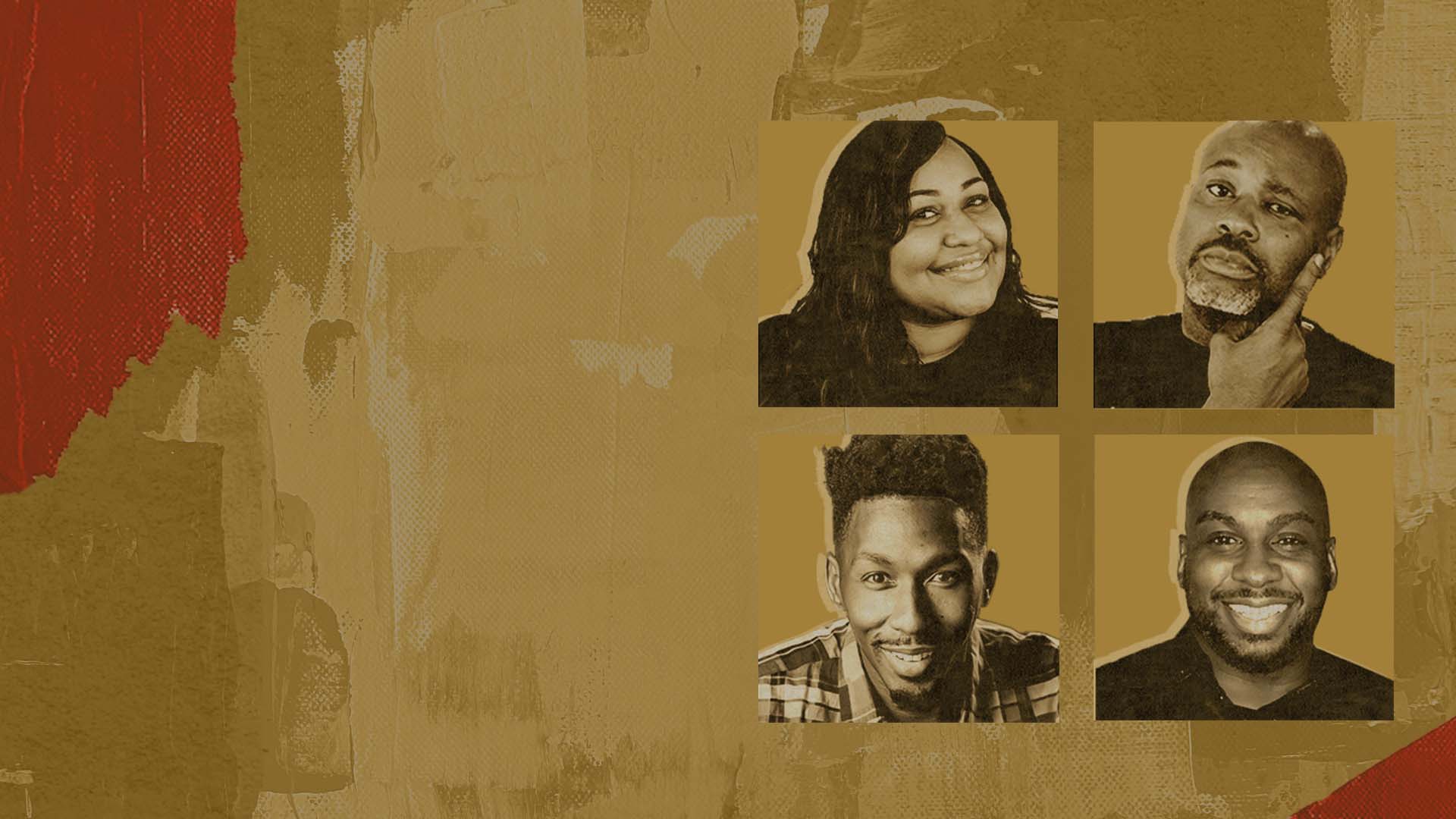
Let us march on, ’til victory is won
The Apollo Theater commemorates Juneteenth and the liberation of enslaved African-Americans on June 19, 1865. On this day, we honor the lives and contributions of our ancestors and their fortitude that paved the way for the innovation, thought leadership, creativity and culture that the Apollo embodies today. We offer these resources, performances, and guides for young people based on past Apollo Theater productions, with the hope that they will be useful if you are seeking ways to engage in conversations and activities around race and injustice during this time.
A Statement from Executive Producer Kamilah Forbes:
In 1934, the year the Apollo Theater was founded, W.E.B. DuBois came to New York City and gave a speech stating that it was imperative that the African-American community “found its own institutions, to educate its genius, and at the same time, without mob violence or extremes of race hatred, to keep in helpful touch and cooperate with the mass of the nation.“
It was the same year the country was reeling from one of the highest rates of unemployment in our history and in the midst of the Great Depression, while also reckoning with public lynchings that were taking place across our country.
During that same period, Billie Holiday took to the Apollo Theater stage and sang Lewis Allen’s poem “Strange Fruit,” one of America’s most important protest songs.
The Apollo Theater has a deep history of nurturing Black artistic genius, promoting artistic excellence and Black artistic excellence as a foundation of American culture. We have always understood the relationship to culture and American citizenship.
Long before politicians passed civil rights legislations and voters went to the ballot box to elect the first Black president, Black artists and audiences thrived in the safety and love and creative spaces of the Apollo Theater as a way of celebrating their humanity and heritage.
The Apollo has never wavered, always believing that Black Art is paramount and that All Black Lives Matter.
And today our relevance and urgency couldn’t ring more true.
-Kamilah Forbes
Apollo Theater Resources
Ta-Nehisi Coates' Between the World and Me: A Resource Guide
This Resource Guide was created to integrate the book Between the World and Me by Ta-Nehisi Coates and the subsequent Apollo theatrical production into classroom curriculum. Each lesson in the Resource Guide references themes discussed in the book. The Guide provides supporting resources and references inclusive of literature and poetry, film and video, works of art and music, and a review and interview with Coates.
View Resource Guide
Apollo Uptown Hall: Movement Required - A Community Conversation
Educators examine racism’s impact on law enforcement, education, and other civil services during Apollo Uptown Hall: Movement Required. This community conversation featured Marc Bamuthi Joseph, founding Program Director of Youth Speaks; Jason Osder, GWU assistant professor; Rachel Shapiro, NYC DOE Manhattan Borough Arts Director for the Office of Arts and Special Projects, and other notable activists and advocates. Apollo Uptown Hall: Movement Required was motivated by the themes from the Apollo and Opera Philadelphia’s October 2017 opera, We Shall Not Be Moved.
Watch Here
Opera Philadelphia's We Shall Not Be Moved
Inspired by the 1985 MOVE crisis in Philadelphia where a standoff between police and a Black liberation group resulted in the deadly bombing of a residential neighborhood, this production explores that legacy today through the lives of five Philly teens who find power in family and resistance. CLICK HERE to view an interactive timeline highlighting social movements and events that occurred in the United States.
CLICK HERE to view the Student Study Guide.
Watch Full Performance
More Friends of the Apollo
Schomburg Center for Research in Black Culture
Friday, June 19, 2pm ET / Virtual Event
This online event will feature music from Rootstock Republic, premiering a new arrangement of “Strange Fruit” the seminal song, made famous by Billie Holiday; an engaging dialogue with Chef and Historian Therese Nelson,Dr. Andrea Roberts, founder of Texas Freedom Colonies Project and two descendants of Texas’s Freedom Colonies–Fred McCray, and Lareatha Clay; and a celebration of Juneteenth through food with Chef and TV personality Carla Hall.
Along with Juneteenth festivities, Schomburg is hosting a teach-in on Tuesday, June 23, at 5 p.m. Brian Jones, Associate Director of Education at the Schomburg Center, will discuss abolitionist education with renowned authors, professors, and leaders from around the nation. In addition to these events, the Schomburg Center has compiled a Black Liberation Reading List, which can be found on their website.
Juneteenth Jubilee
Friday, June 19, 3pm ET / Harlem
The Blacksmiths & Intersectional Voices Collectives welcome all Black people, with special attention to Black queer and Trans people, in commemorating a rich history of Black music and activism in Harlem. Attendees are advised to wear white with a touch of red and remember their masks. The Blacksmiths & Intersectional Voices Collectives remind participants to take safety precautions while embracing the spirit of celebration. Festivities will include song, dance, speech, and a symbolic march.
Performers: Wynton Marsalis, Stretch Armstrong, Vuyo Sotashe, Ayanna Heaven, DJ Bianca, DJ Funmi, Marquis Hill, Michael Mwenso, C. Anthony Bryant, Shenel Johns, Bruce Harris, Jacqueline Acevedo, Linda Briceno, Savannah Harris, Giveton Gellin, Kyle Poole, Mathis Picard, and more.
Grand Marshall: George Faison
Route: Starting at 110th Street and Malcom X Blvd. North on Malcolm X, West on 125 to Frederick Douglass, North to 135, East back to Malcolm X, North to 145, West to St. Nick, down to St. Nick Park entrance at 135.
International Association of Blacks in Dance (IABD)
Friday, June 19th, 4pm ET / Virtual Event
In celebration of Juneteenth and Black Music Month, IABD invites you to experience a virtual roundtable discussion celebrating Black Dance and Black Music’s relationship with each other and its connection to Resistance, Revolution, Resilience and Remembrance. With guests Jamal Story (Independent Artist-Lead Guest), Tonya Amos (Grown Women Collective), Cleo Parker Robinson (Cleo Parker Robinson Dance), Melanie George (Independent Jazz Dance Artist/Choreographer), E. Moncell Durden (USC Kaufman School of Dance) and Pat Taylor (Jazz Antiqua).
Tune In
27th Annual Juneteenth Walk
Saturday, June 20th, 10am ET / Harlem
Join this long standing Harlem tradition in recognizing Juneteenth as the oldest known celebration of the emancipation of slavery. The walk will conclude with speakers outside of the State Office Building located at 163 West 125th Street. Masks will be required and social distancing rules apply.
Line up begins: 10am
Walk begins: 11am
Location: 116th Street between Malcolm X Blvd and 7th Ave.
Let us march on, ’til victory is won
The Apollo Theater commemorates Juneteenth and the liberation of enslaved African-Americans on June 19, 1865. On this day, we honor the lives and contributions of our ancestors and their fortitude that paved the way for the innovation, thought leadership, creativity and culture that the Apollo embodies today. We offer these resources, performances, and guides for young people based on past Apollo Theater productions, with the hope that they will be useful if you are seeking ways to engage in conversations and activities around race and injustice during this time.
A Statement from Executive Producer Kamilah Forbes:
In 1934, the year the Apollo Theater was founded, W.E.B. DuBois came to New York City and gave a speech stating that it was imperative that the African-American community “found its own institutions, to educate its genius, and at the same time, without mob violence or extremes of race hatred, to keep in helpful touch and cooperate with the mass of the nation.“
It was the same year the country was reeling from one of the highest rates of unemployment in our history and in the midst of the Great Depression, while also reckoning with public lynchings that were taking place across our country.
During that same period, Billie Holiday took to the Apollo Theater stage and sang Lewis Allen’s poem “Strange Fruit,” one of America’s most important protest songs.
The Apollo Theater has a deep history of nurturing Black artistic genius, promoting artistic excellence and Black artistic excellence as a foundation of American culture. We have always understood the relationship to culture and American citizenship.
Long before politicians passed civil rights legislations and voters went to the ballot box to elect the first Black president, Black artists and audiences thrived in the safety and love and creative spaces of the Apollo Theater as a way of celebrating their humanity and heritage.
The Apollo has never wavered, always believing that Black Art is paramount and that All Black Lives Matter.
And today our relevance and urgency couldn’t ring more true.
-Kamilah Forbes
Apollo Theater Resources
Ta-Nehisi Coates' Between the World and Me: A Resource Guide
This Resource Guide was created to integrate the book Between the World and Me by Ta-Nehisi Coates and the subsequent Apollo theatrical production into classroom curriculum. Each lesson in the Resource Guide references themes discussed in the book. The Guide provides supporting resources and references inclusive of literature and poetry, film and video, works of art and music, and a review and interview with Coates.
View Resource Guide
Apollo Uptown Hall: Movement Required - A Community Conversation
Educators examine racism’s impact on law enforcement, education, and other civil services during Apollo Uptown Hall: Movement Required. This community conversation featured Marc Bamuthi Joseph, founding Program Director of Youth Speaks; Jason Osder, GWU assistant professor; Rachel Shapiro, NYC DOE Manhattan Borough Arts Director for the Office of Arts and Special Projects, and other notable activists and advocates. Apollo Uptown Hall: Movement Required was motivated by the themes from the Apollo and Opera Philadelphia’s October 2017 opera, We Shall Not Be Moved.
Watch Here
Opera Philadelphia's We Shall Not Be Moved
Inspired by the 1985 MOVE crisis in Philadelphia where a standoff between police and a Black liberation group resulted in the deadly bombing of a residential neighborhood, this production explores that legacy today through the lives of five Philly teens who find power in family and resistance. CLICK HERE to view an interactive timeline highlighting social movements and events that occurred in the United States.
CLICK HERE to view the Student Study Guide.
Watch Full Performance
More Friends of the Apollo
Schomburg Center for Research in Black Culture
Friday, June 19, 2pm ET / Virtual Event
This online event will feature music from Rootstock Republic, premiering a new arrangement of “Strange Fruit” the seminal song, made famous by Billie Holiday; an engaging dialogue with Chef and Historian Therese Nelson,Dr. Andrea Roberts, founder of Texas Freedom Colonies Project and two descendants of Texas’s Freedom Colonies–Fred McCray, and Lareatha Clay; and a celebration of Juneteenth through food with Chef and TV personality Carla Hall.
Along with Juneteenth festivities, Schomburg is hosting a teach-in on Tuesday, June 23, at 5 p.m. Brian Jones, Associate Director of Education at the Schomburg Center, will discuss abolitionist education with renowned authors, professors, and leaders from around the nation. In addition to these events, the Schomburg Center has compiled a Black Liberation Reading List, which can be found on their website.
Juneteenth Jubilee
Friday, June 19, 3pm ET / Harlem
The Blacksmiths & Intersectional Voices Collectives welcome all Black people, with special attention to Black queer and Trans people, in commemorating a rich history of Black music and activism in Harlem. Attendees are advised to wear white with a touch of red and remember their masks. The Blacksmiths & Intersectional Voices Collectives remind participants to take safety precautions while embracing the spirit of celebration. Festivities will include song, dance, speech, and a symbolic march.
Performers: Wynton Marsalis, Stretch Armstrong, Vuyo Sotashe, Ayanna Heaven, DJ Bianca, DJ Funmi, Marquis Hill, Michael Mwenso, C. Anthony Bryant, Shenel Johns, Bruce Harris, Jacqueline Acevedo, Linda Briceno, Savannah Harris, Giveton Gellin, Kyle Poole, Mathis Picard, and more.
Grand Marshall: George Faison
Route: Starting at 110th Street and Malcom X Blvd. North on Malcolm X, West on 125 to Frederick Douglass, North to 135, East back to Malcolm X, North to 145, West to St. Nick, down to St. Nick Park entrance at 135.
International Association of Blacks in Dance (IABD)
Friday, June 19th, 4pm ET / Virtual Event
In celebration of Juneteenth and Black Music Month, IABD invites you to experience a virtual roundtable discussion celebrating Black Dance and Black Music’s relationship with each other and its connection to Resistance, Revolution, Resilience and Remembrance. With guests Jamal Story (Independent Artist-Lead Guest), Tonya Amos (Grown Women Collective), Cleo Parker Robinson (Cleo Parker Robinson Dance), Melanie George (Independent Jazz Dance Artist/Choreographer), E. Moncell Durden (USC Kaufman School of Dance) and Pat Taylor (Jazz Antiqua).
Tune In
27th Annual Juneteenth Walk
Saturday, June 20th, 10am ET / Harlem
Join this long standing Harlem tradition in recognizing Juneteenth as the oldest known celebration of the emancipation of slavery. The walk will conclude with speakers outside of the State Office Building located at 163 West 125th Street. Masks will be required and social distancing rules apply.
Line up begins: 10am
Walk begins: 11am
Location: 116th Street between Malcolm X Blvd and 7th Ave.
Join THE A-LIST
Four wheelchair seating locations will be reserved until the day of each performance.Each seating level is accessible via the elevator inside The Apollo’s Historic Theater. Guests should be aware of the small steps leading toward the Mezzanine and Balcony seating levels. Depending on the guest’s ticket location for these two levels, additional walking may be required. If guests are not able to travel up and down steps, tickets for events should be purchased for the Orchestra level.
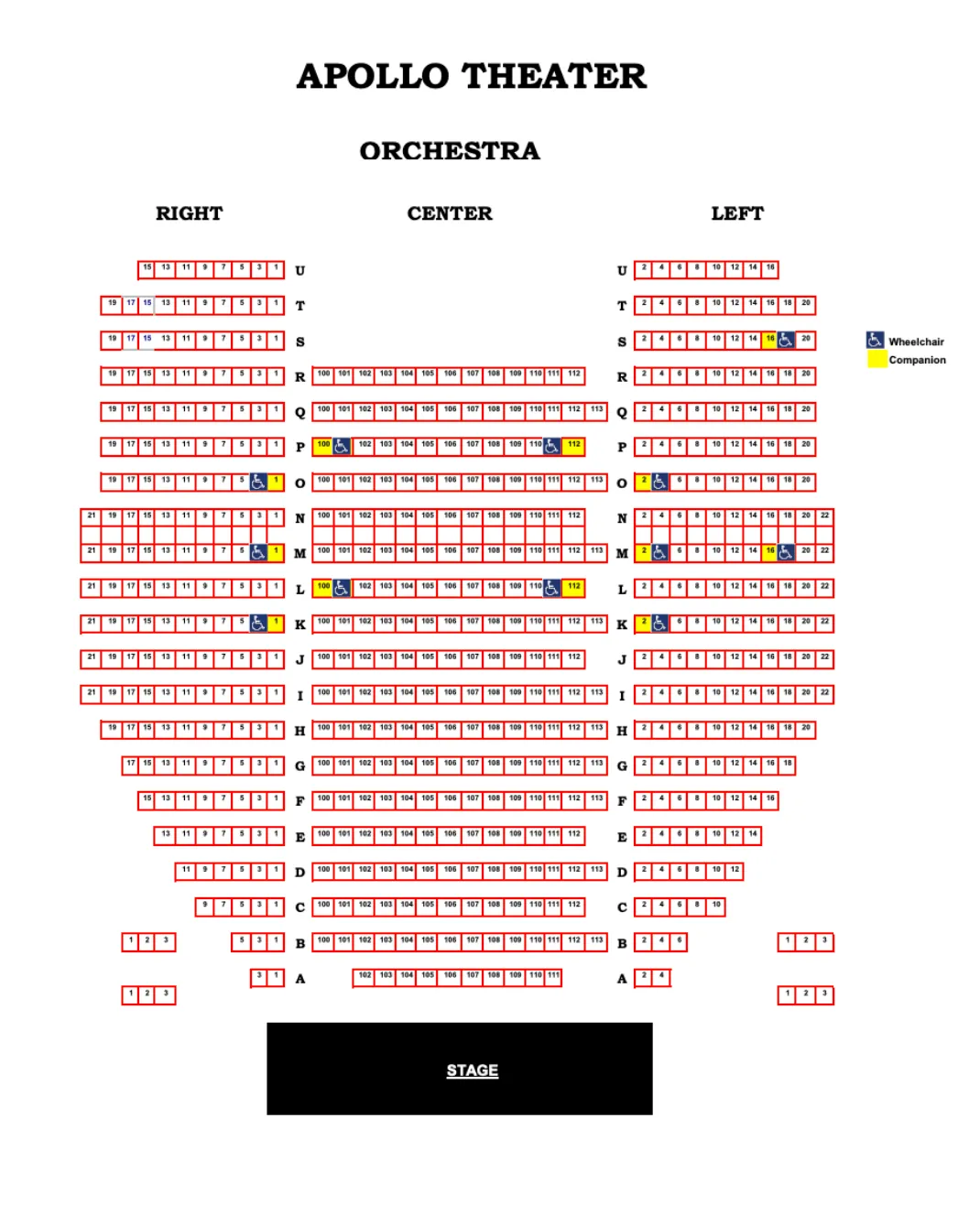


Four wheelchair seating locations will be reserved until the day of each performance.Each seating level is accessible via the elevator inside The Apollo’s Historic Theater. Guests should be aware of the small steps leading toward the Mezzanine and Balcony seating levels. Depending on the guest’s ticket location for these two levels, additional walking may be required. If guests are not able to travel up and down steps, tickets for events should be purchased for the Orchestra level.


box office



New York, NY 10027

New York, NY 10027

Support The Apollo

Accesibility
The Apollo is here for everyone. Artists, audiences, and all supporters should be able to experience The Apollo fully and in a way that is comfortable for them.
The Apollo has taken comprehensive steps to ensure that entrances, seating, restrooms, and more are as accessible and compliant as possible. Learn more about accessibility options and support services that might be right for you.



VISITOR INFORMATION

All persons and bags are subject to search. Bags that have passed inspection must fit comfortably under your seat. Oversized bags are prohibited.
No outside food or beverage. Accommodations are made for patrons with medical needs. Please email access@apollotheater.org or call the box office at (212) 531-5305 for assistance.


New York, NY 10027
Accessibility
The Apollo is here for everyone. Artists, audiences, and all supporters should be able to experience The Apollo fully and in a way that is comfortable for them.
The Apollo has taken comprehensive steps to ensure that entrances, seating, restrooms, and more are as accessible and compliant as possible. Learn more about accessibility options and support services that might be right for you.


All persons and bags are subject to search. Bags that have passed inspection must fit comfortably under your seat. Oversized bags are prohibited.
No outside food or beverage. Accommodations are made for patrons with medical needs. Please email access@apollotheater.org or call the box office at (212) 531-5305 for assistance.






